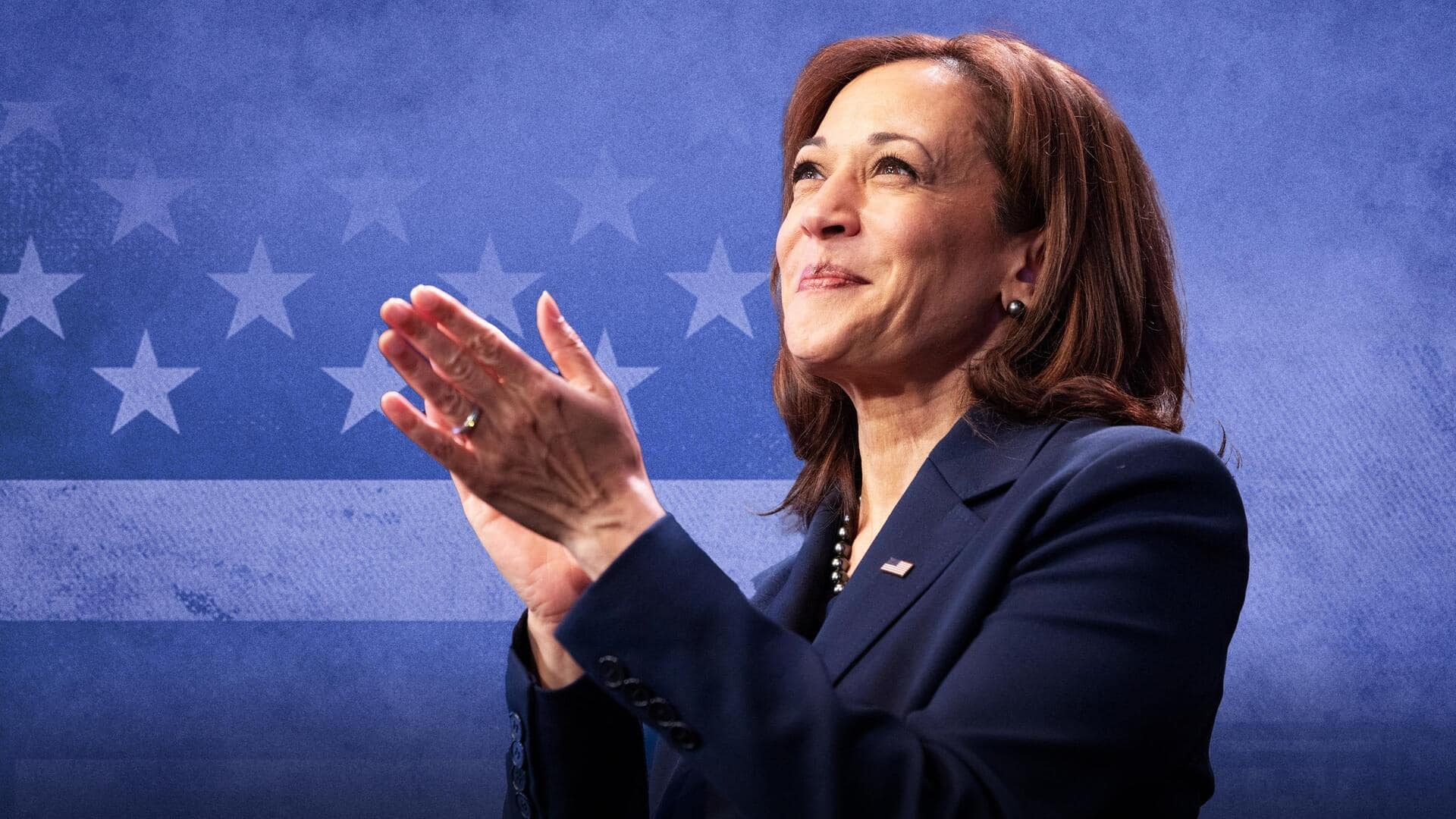
US: Kamala Harris makes history with Democratic presidential nomination
What's the story
Vice President Kamala Harris has officially secured the Democratic presidential nomination, marking a historic moment as the first woman of color to lead a major party ticket. This achievement comes over four years after her initial bid for the presidency. The nomination follows a period of significant intraparty conflict within the Democratic ranks, sparked by President Joe Biden's poor performance in a June debate.
Swift succession
Harris clinches nomination
Following President Biden's decision to end his candidacy, Harris and her team quickly secured the necessary backing from 1,976 party delegates to clinch the nomination. A survey by news agency AP revealed that she achieved this within 32 hours of Biden's announcement. The nomination was confirmed after a five-day round of online balloting by Democratic National Convention delegates, with 99% casting their votes for Harris.
Favorable view
Public opinion favors Harris over Biden
A poll conducted by the AP-NORC Center for Public Affairs Research after Biden's withdrawal found that 46% of Americans have a favorable view of Harris. More Democrats expressed satisfaction with her candidacy compared to Biden's, energizing a party that had been resigned to Biden being its nominee against former President Donald Trump. This shift in public sentiment indicates a renewed vigor within the Democratic ranks.
Policy continuity
Harris to continue Biden's policy themes
Harris has indicated that she will continue to focus on themes and policies that framed Biden's candidacy, such as democracy, gun violence prevention, and abortion rights. However, she is expected to bring a fierier delivery style, particularly when discussing Trump and his felony convictions related to business record falsification.
Career path
Harris's political journey
Born in Oakland, California in 1964 to immigrant parents from India and Jamaica, Harris spent years as a prosecutor before becoming California's attorney general in 2010 and then US senator in 2016. Her initial 2020 presidential campaign showed promise but ended prematurely due to staff dissent and lack of campaign funds. Despite these setbacks, her close friendship with Biden led her to the top of his vice presidential shortlist.